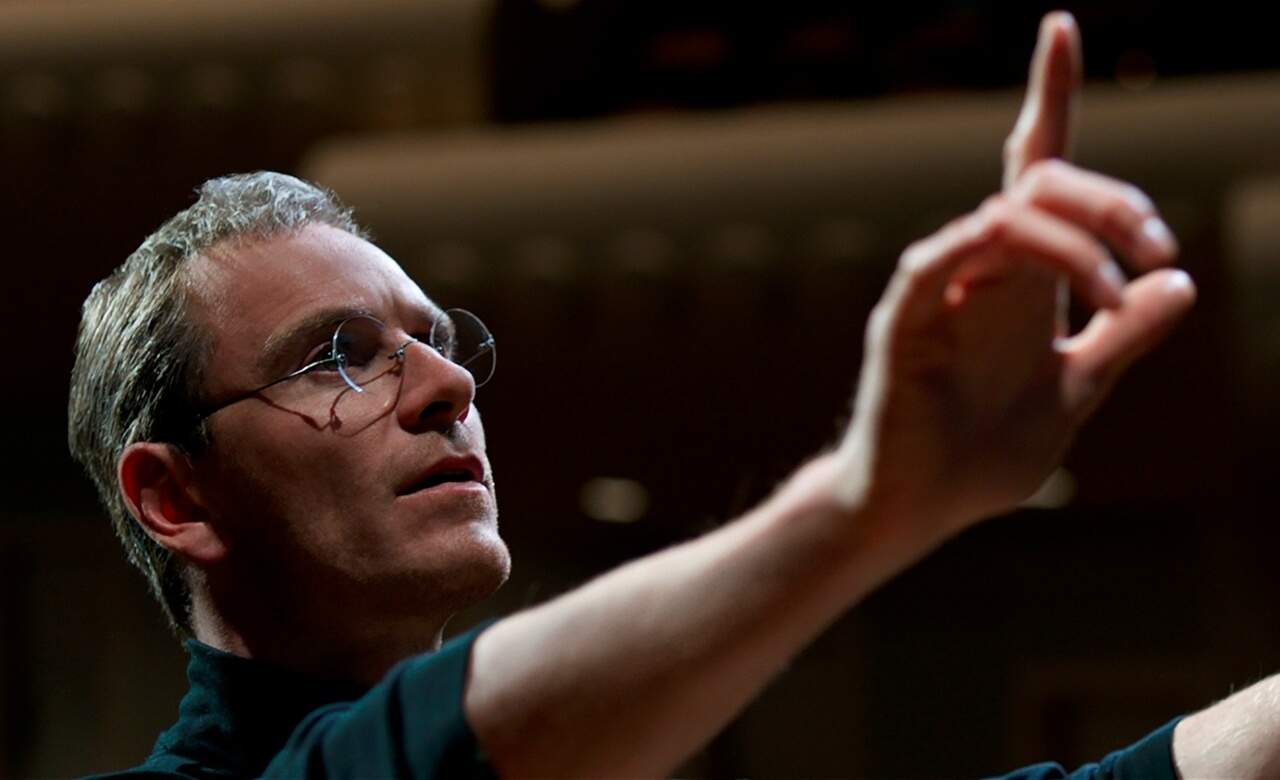Steve Jobs
A balanced and often critical perspective of the flawed visionary behind Apple, Pixar and everything 'Mac'.
Overview
Every Mac user the world over knows the scenario: you save up, invest in a shiny new Apple product and take it home just in time to discover a newer, better version has been released. So too comes the biopic Steve Jobs, released just a few short years after 2013’s JOBS starring Ashton Kutcher. Sleeker, slicker and definitely better designed, Danny Boyle’s film is undoubtedly the kind of superior upgrade that this compelling story demands.
Written by West Wing creator and Social Network scribe Aaron Sorkin, and based on the book by Walter Isaacson, Steve Jobs is an intense three-act drama of such fervid dialogue and minimal action that it would not feel at all out of place on a stage instead of a screen. Each ‘act’ takes place in the minutes preceding one of Jobs’ iconic product launches, and each is filmed in an appropriately coeval format – 16mm film stock for 1984’s Mac launch, 35mm for the introduction of 1988’s NeXT 'Black Box’ and digital for 1998’s iMac. The staging is an effective device, giving the film a persistent tension by combining the inherent pre-launch nerves with heated backstage conversations between all of the key figures in Jobs’ life.
Portrayed magnificently by Michael Fassbender, we find in Steve Jobs a flawed visionary, as opposed to the saccharine, almost messianic figure found in the Kutcher version. Fassbender extracts and develops every foible nestled within Sorkin’s crackling screenplay – the obsessive preoccupation with seemingly trivial details, the isolating stubbornness and the unyielding belief that he was always right (resulting in a beautifully placed third-act beat when he’s confronted by an inescapable mistake of his own making).
The supporting cast is equally strong, with three outstanding performances from Jeff Daniels as Jobs’s father figure-cum-foe John Sculley, Seth Rogen as Apple co-founder Steve Wozniak and Kate Winslet as Jobs’s confidant Joanna Hoffman (sporting a terrific, if also inconsistent, Polish accent). Daniels, Rogen and Winslet each get their time in the light, exchanging witty quips and stinging admonitions with Fassbender. Says Jobs at one point: "It’s like five minutes before every launch everyone goes to the bar and then tells me what they really think of me.” It’s an overly convenient conceit, certainly, but one that also helps ground the story in the personal (rather than technological) demons confronted by its protagonist.
All the usual Sorkinisms are there, and the script does at times feel overwritten, with its hyper-theatrics and laconic wordplay labouring to convince you it's cleverer than it actually is. Still, the performances transcend the shortcomings and allow Steve Jobs to provide a balanced and often critical perspective of a man whose determination to change the world did, for the most part, actually succeed.





